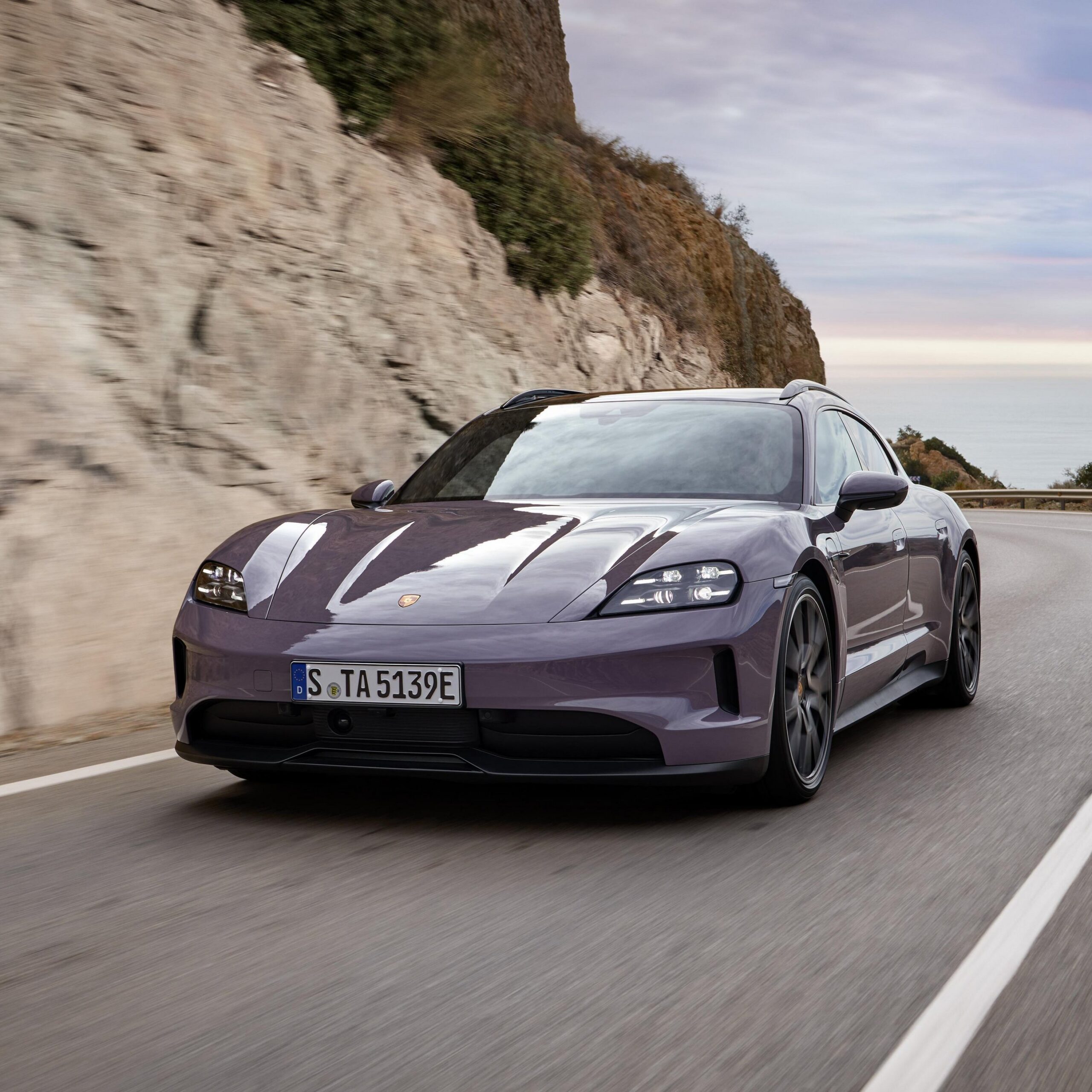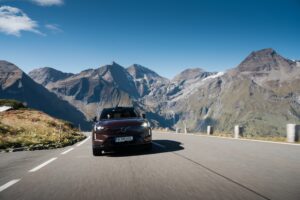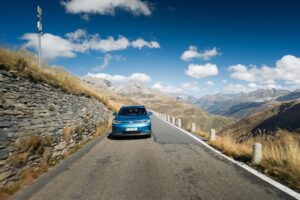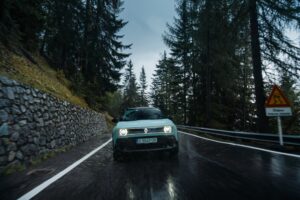When the Taycan officially debuted on September 4 2019, Porsche placed a weighty iceberg on the lascivious shoulders of its first electric car, for several reasons. For example, five years ago, the electric car universe was completely different from the current one – yes, half a decade is a huge amount of time considering the speed at which manufacturers have been offering larger batteries in facelifted models, without waiting for a future replacement for the said model. But we digress.
The Taycan also had a tough test ahead, besides the market one. In fact, the market was the smallest problem, because technologically speaking, the Taycan was the best of the best. What the first electric Porsche had to prove has to do with its name.
The Taycan had to be a Porsche, even if it looked like it came from Mars or any other planet you want. The design was not enough, just as the 911 is not judged only by its silhouette. The Taycan had to be dynamic, as efficient as possible, attractive and, let’s face it, impeccable.
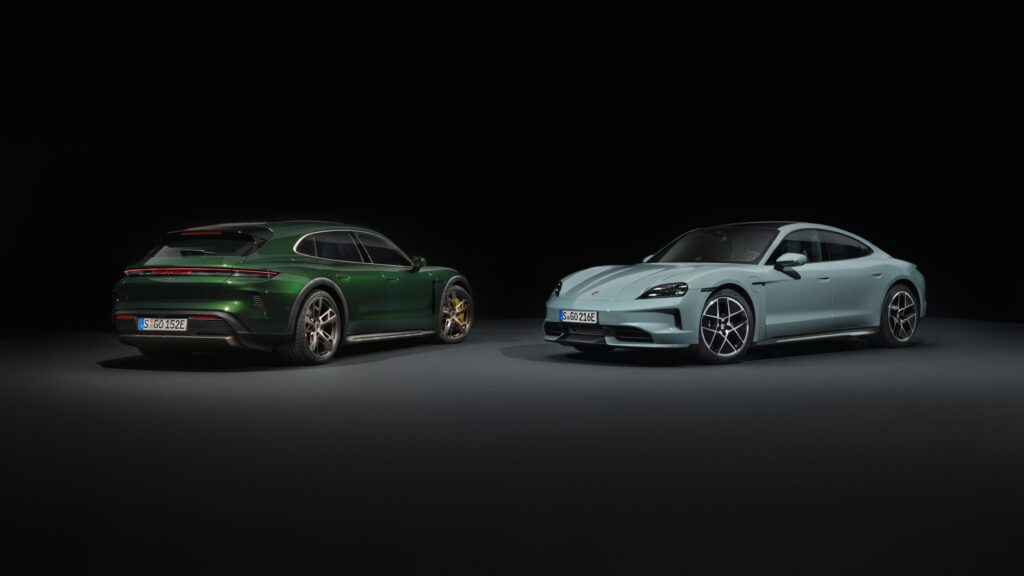
Without judging its abilities right now, five years after its debut, Porsche felt that the Taycan needed a facelift. And in the purest manner of the Stuttgart company, the engineers and designers found room for improvement.
The Porsche Taycan facelift will be with us in EUROCHARGE by Schaeffler, during the 16 days of real-world testing from Bucharest to Lisbon and back.
Mildly Revised
Let’s put aside the subtle changes before moving on to more substantial matters: people will still turn their heads for the Taycan. Guaranteed. The subtle aesthetic surgery applied by Porsche only reduces acidity in areas such as the front spoiler and optimizes the wheel package with mathematical formulas obtained in the wind tunnel. Ironically, you need darkness to find the most obvious aesthetic gain: the name “Porsche”, framed by the taillights, is now illuminated.
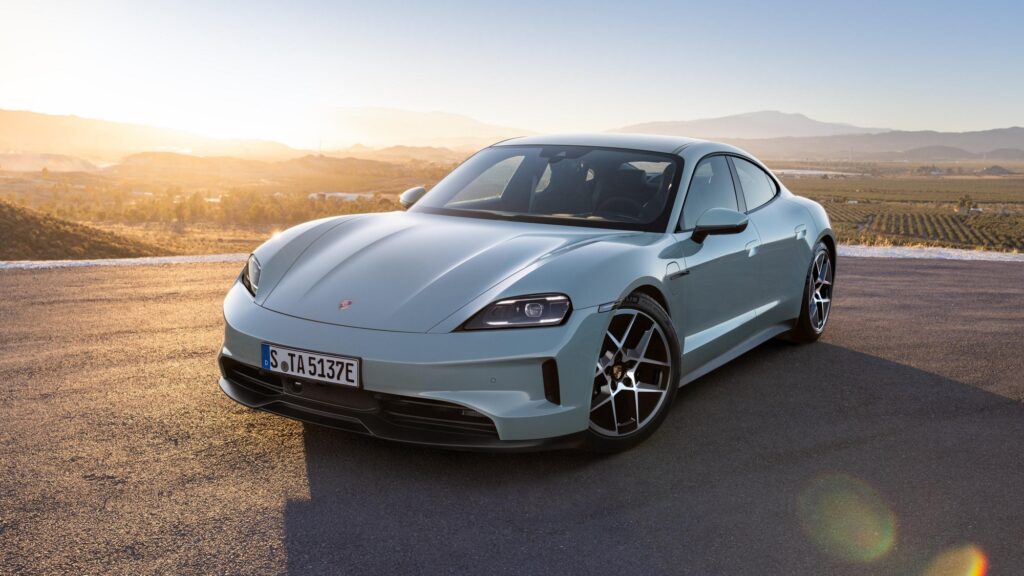
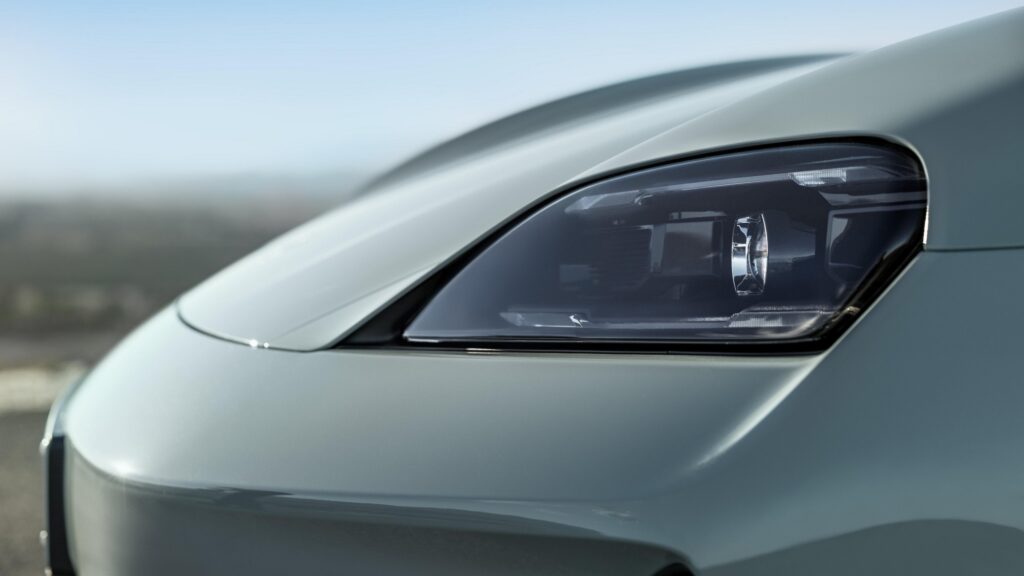
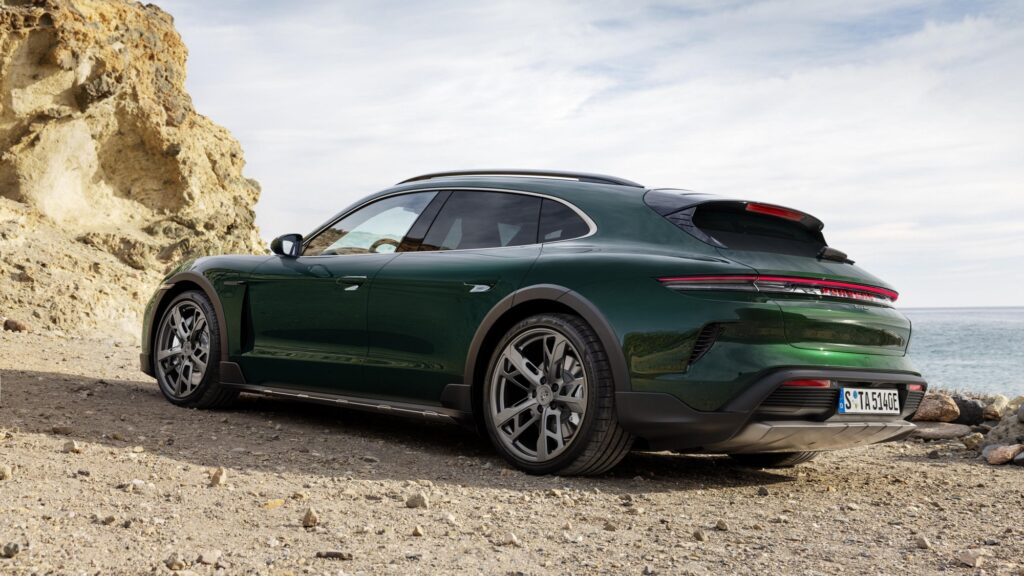
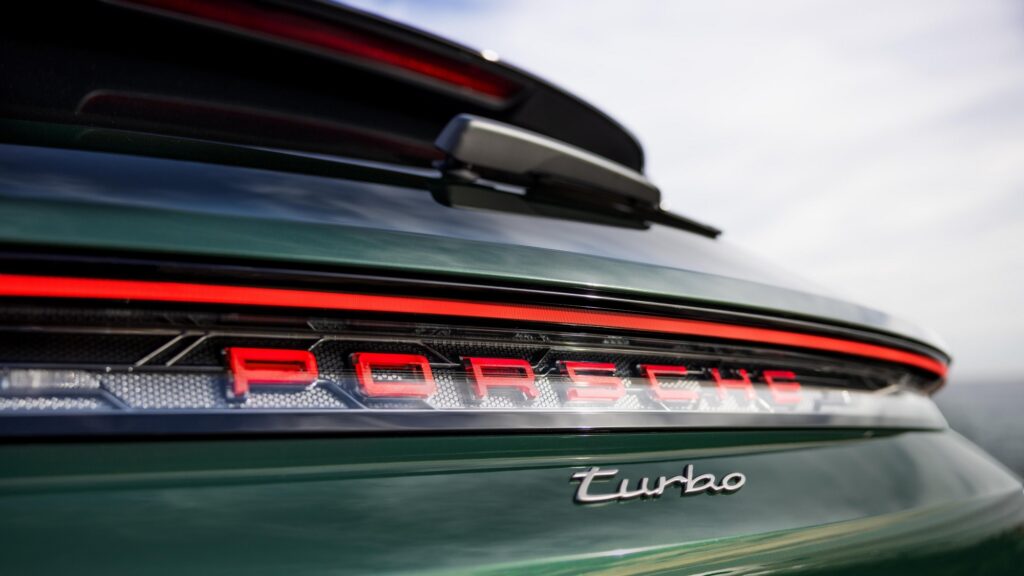
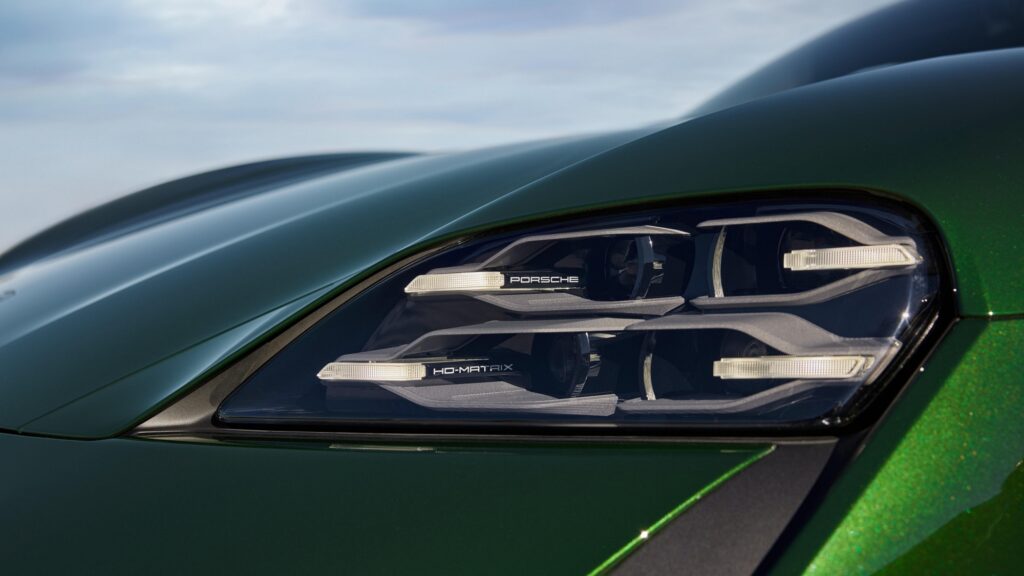
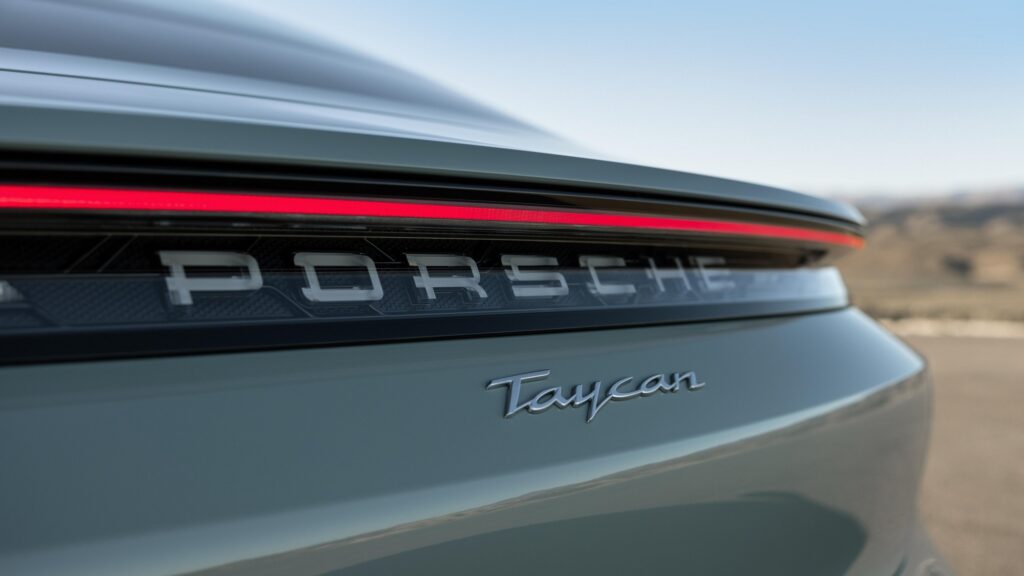
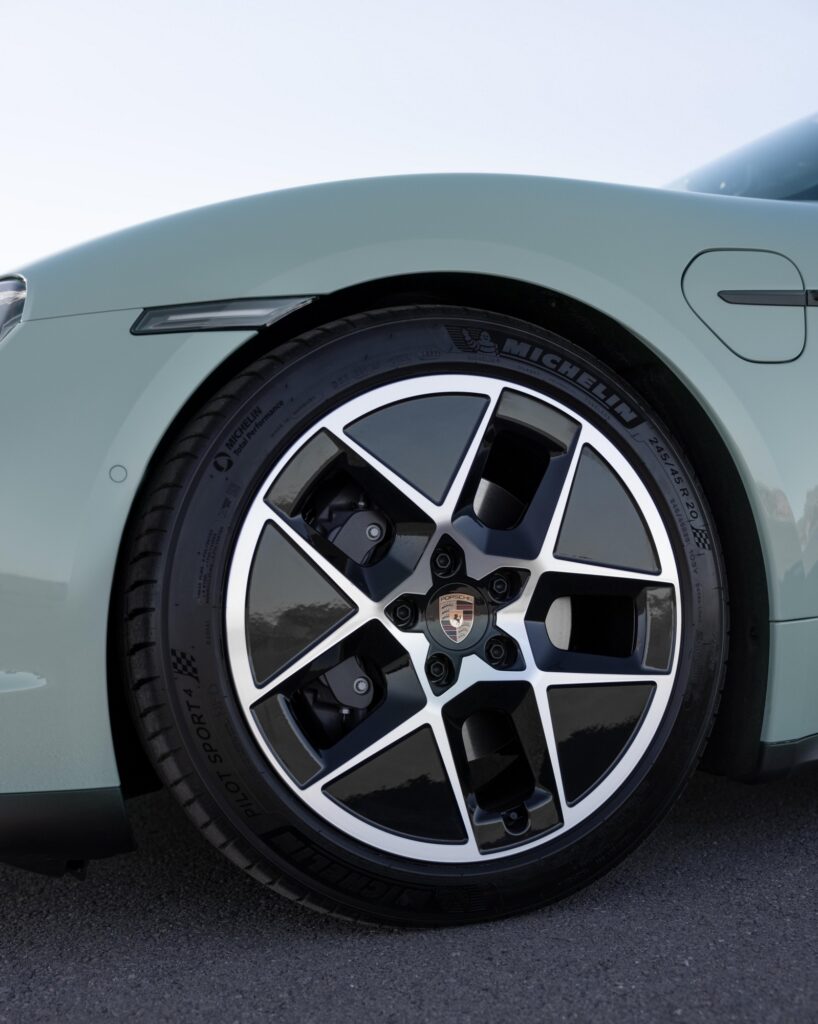
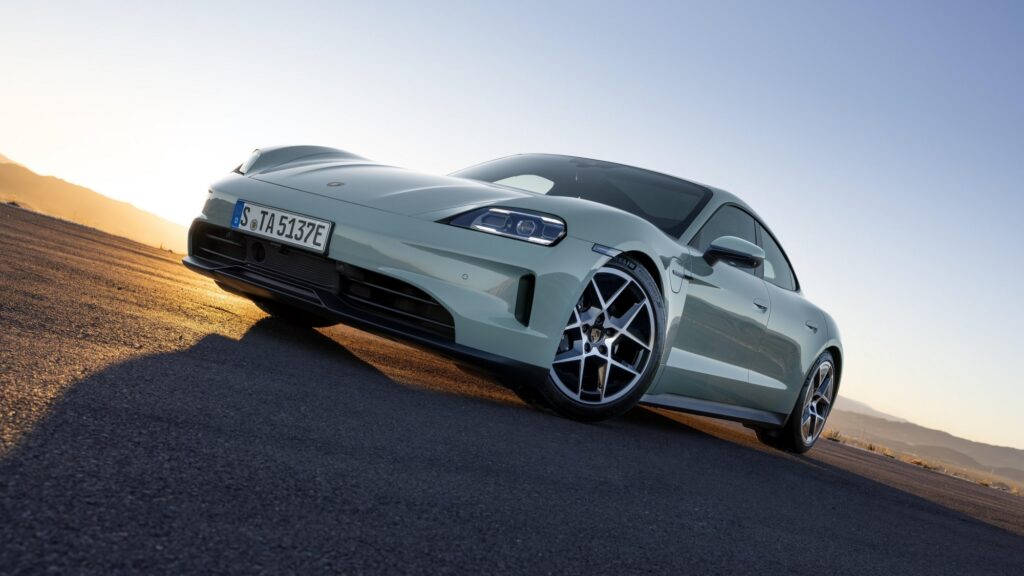
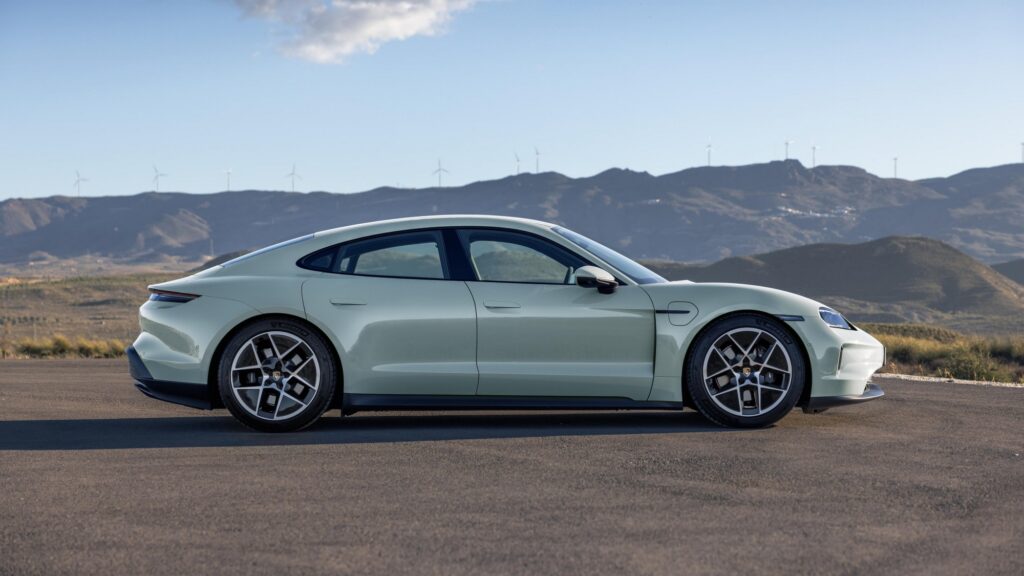
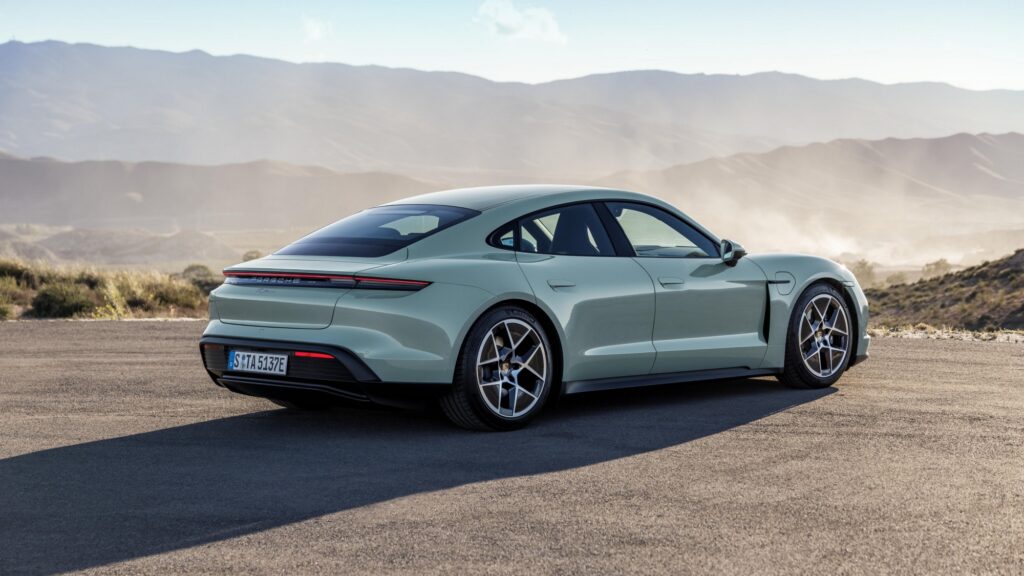
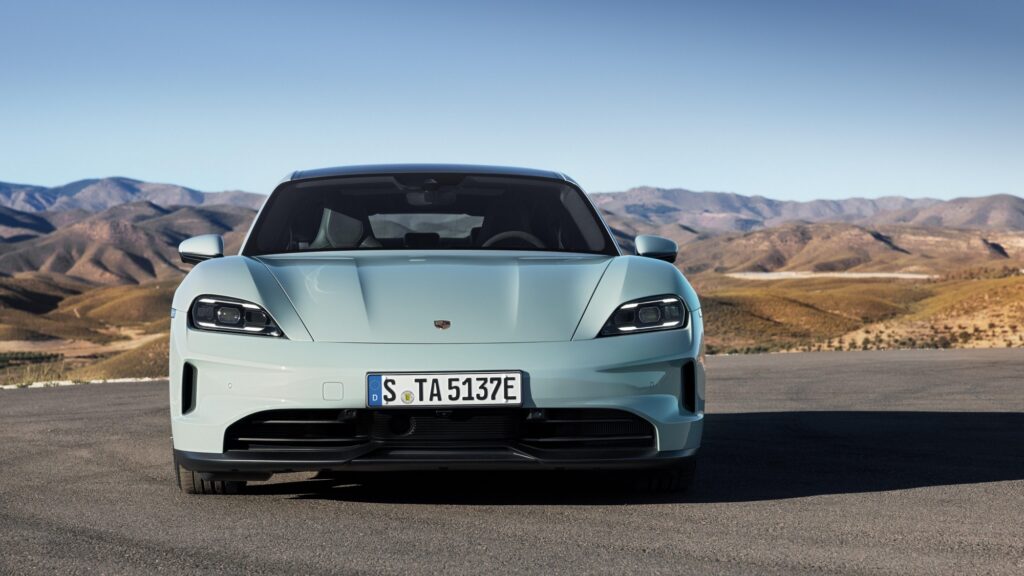
Verdict: The Taycan facelift still looks good. It looks like a Porsche. Which is also valid for the interior, an example as good as the exterior in terms of discretion. You will have to look closely at the steering wheel to see what’s new. More specifically, a selector for the driving modes, available on all versions, and an extra button for the “push-to-pass” function, but this only comes in tandem with the Sport Chrono package and the Battery Performance Plus version. Also new is a lever that lets you better interact with the cruise control system.
P.S.: Push-to-pass is a function taken from motorsport – a long-lived source of inspiration for Porsche. For Taycan, push-to-pass takes up to 95 horsepower from a “secret drawer”, depending on what version you’re driving, and stores it under your right foot for 10 seconds.
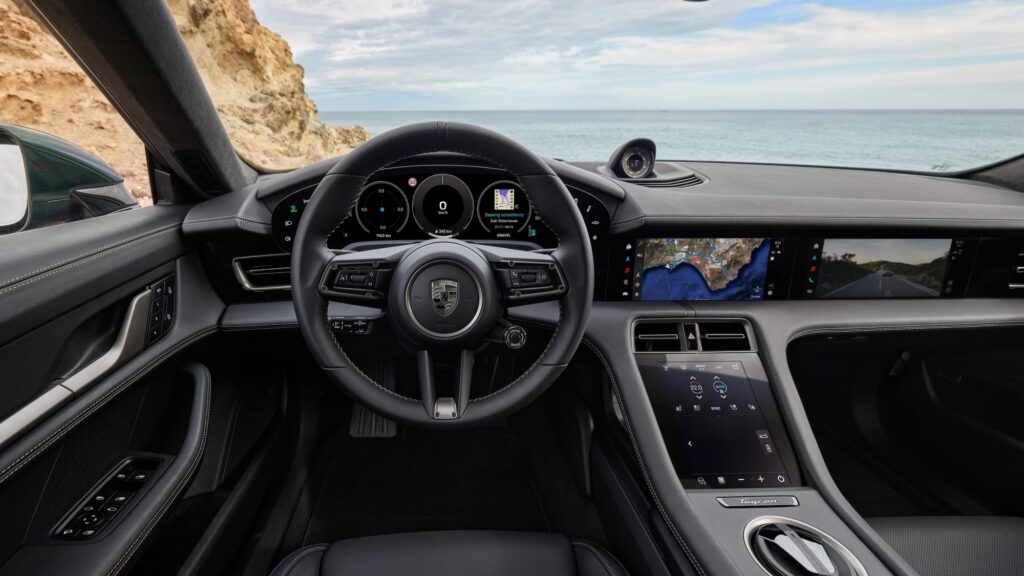
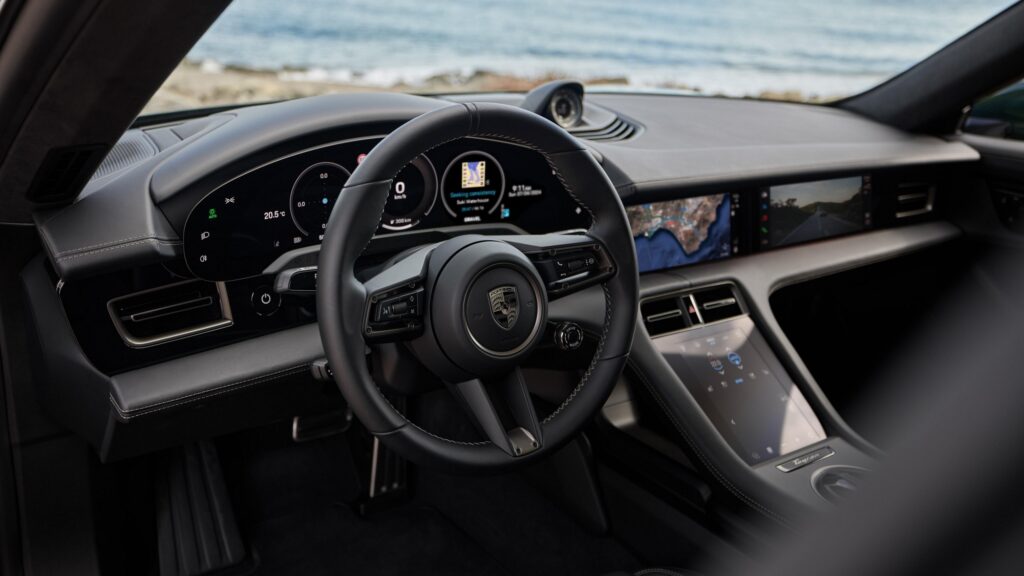
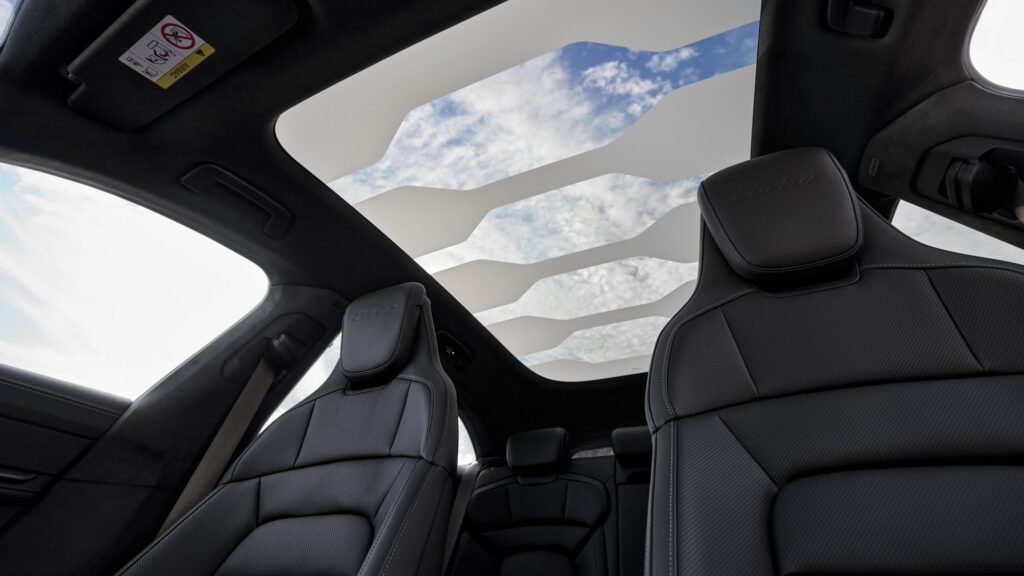
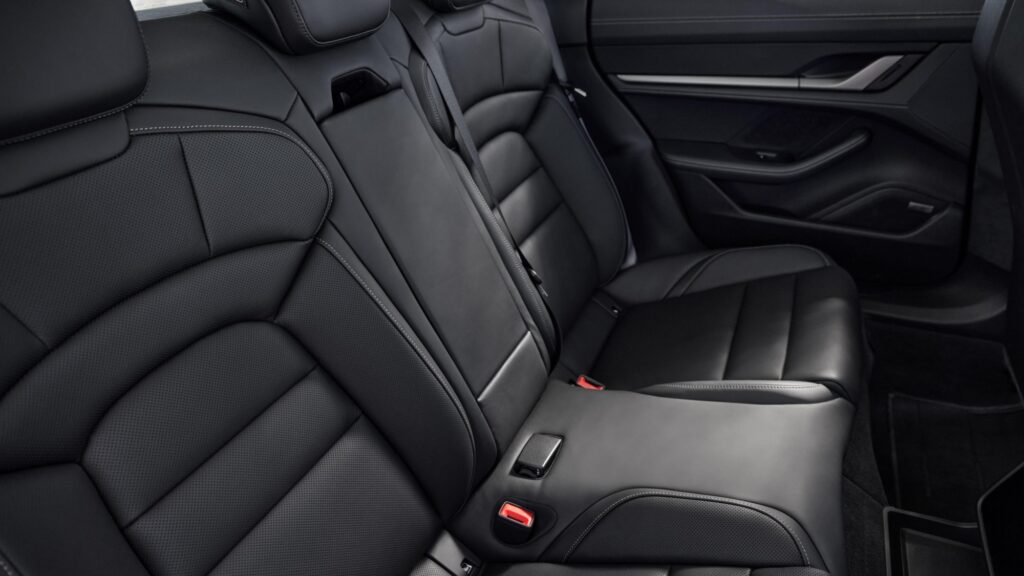
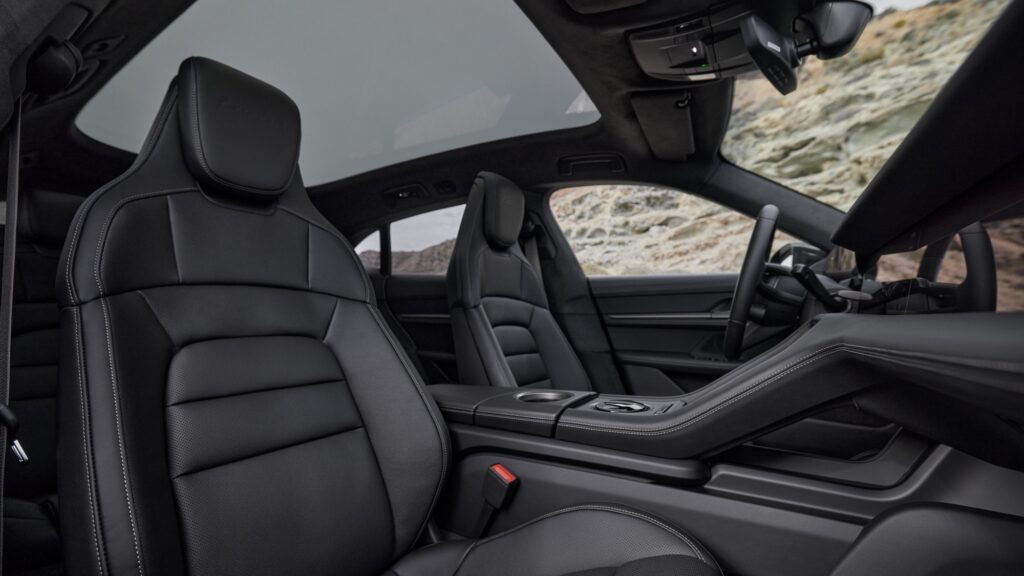
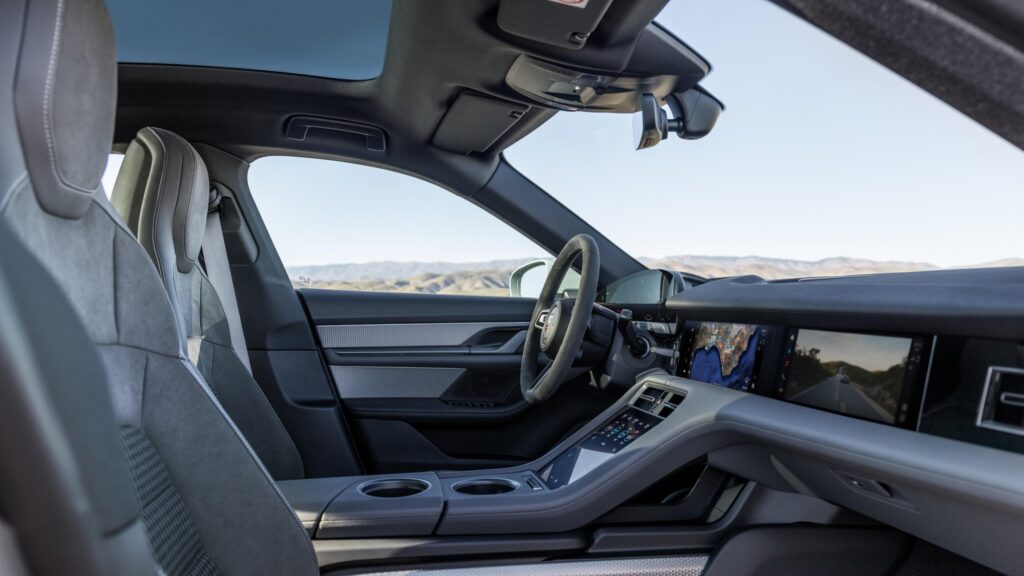
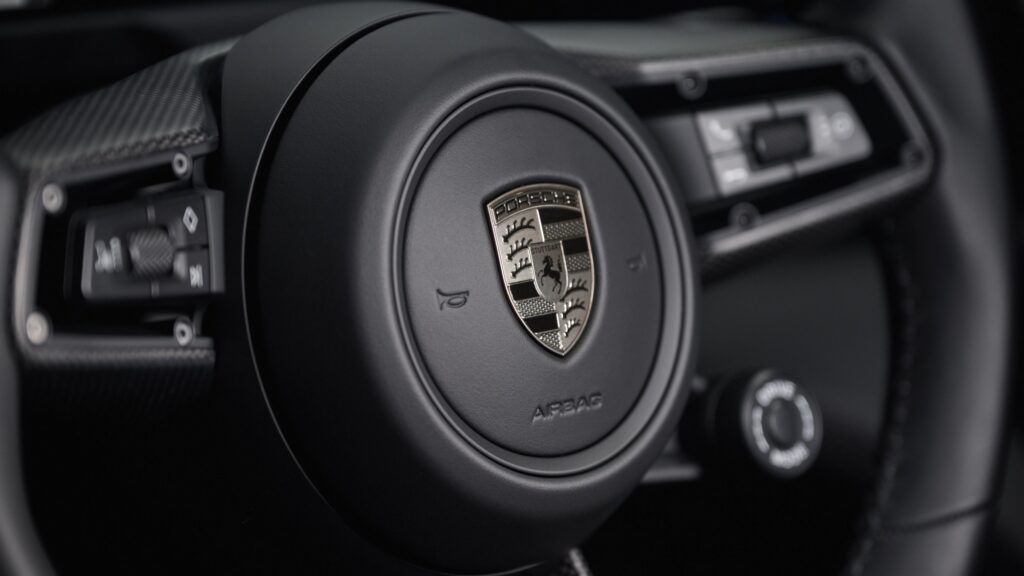
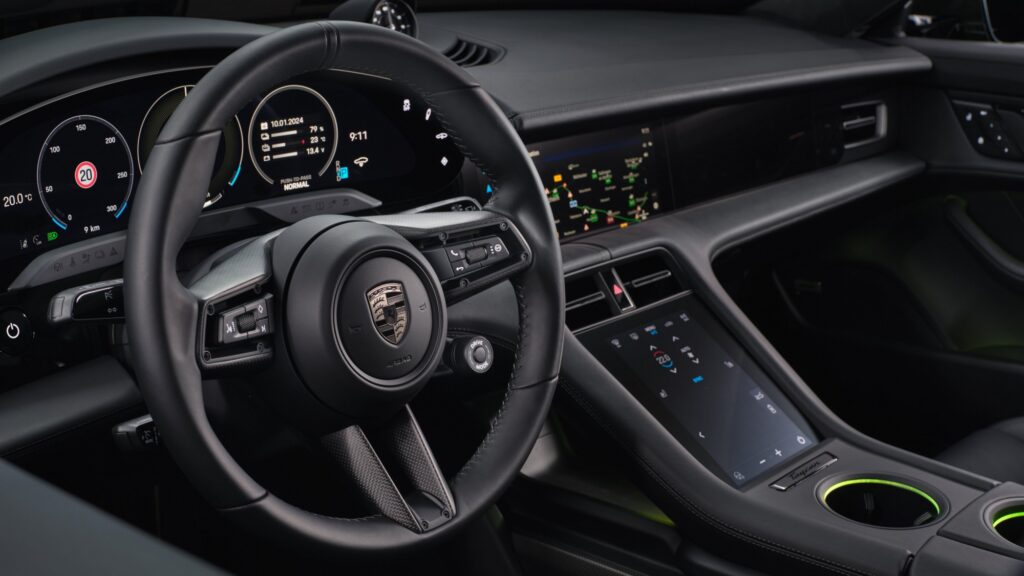
More Cream than Biscuit
Porsche is, without exception, the antonym of superficial. Many of you knew that. It also applies to the Taycan, which see the biggest changes in places hidden from view.
The platform is the same, codename J1, running at 800 volts. However, the electric motors are different. Or rather, the existing ones have been improved for extra horsepower, translated into effective performance. Porsche says that after the facelift, any Taycan, regardless of version, is faster.
For example, a basic Taycan shaves 0.6 seconds off the 0-100 km/h time, which is now 4.8 seconds. The head of the family, the Taycan Turbo S, gets rid of 0.4 seconds for the same interval and can decimate it, I can’t call it anything else, in 2.4 seconds. That’s on the one hand.
On the other hand, there are absolutely brutal power increases (resulting from “tickling” the electric motors): after the facelift, the Taycan Turbo S has 190 more horsepower, so 952 in total.
Okay, okay, but what about batteries and range?
Porsche has also gone to work here. The gross battery capacity increases from 93 kWh gross to 105 kWh. Depending on the version, the increase in capacity can generate 35% more range. Expressed in kilometers, the most efficient Porsche Taycan can travel 678 kilometers on a single full charge.
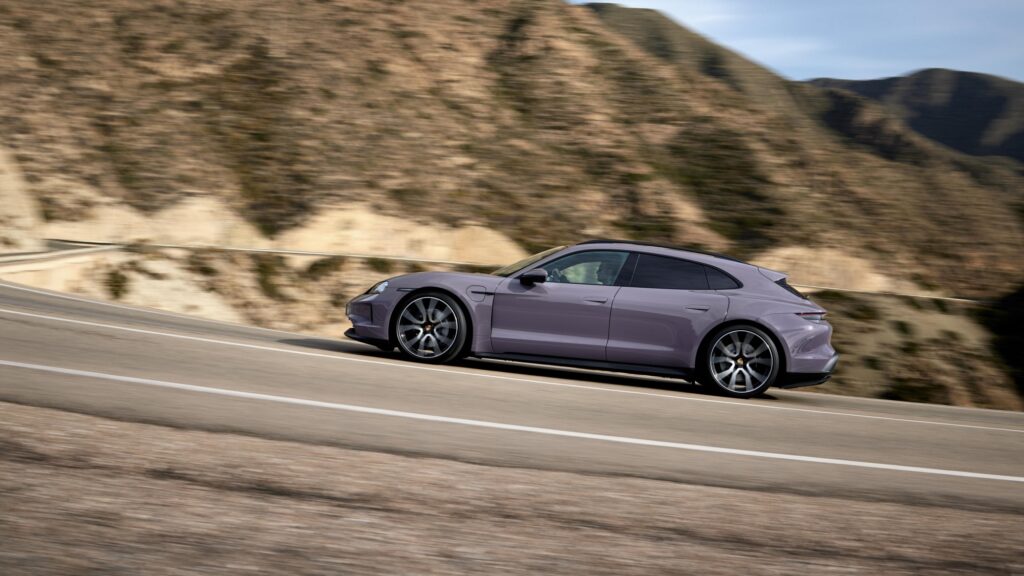
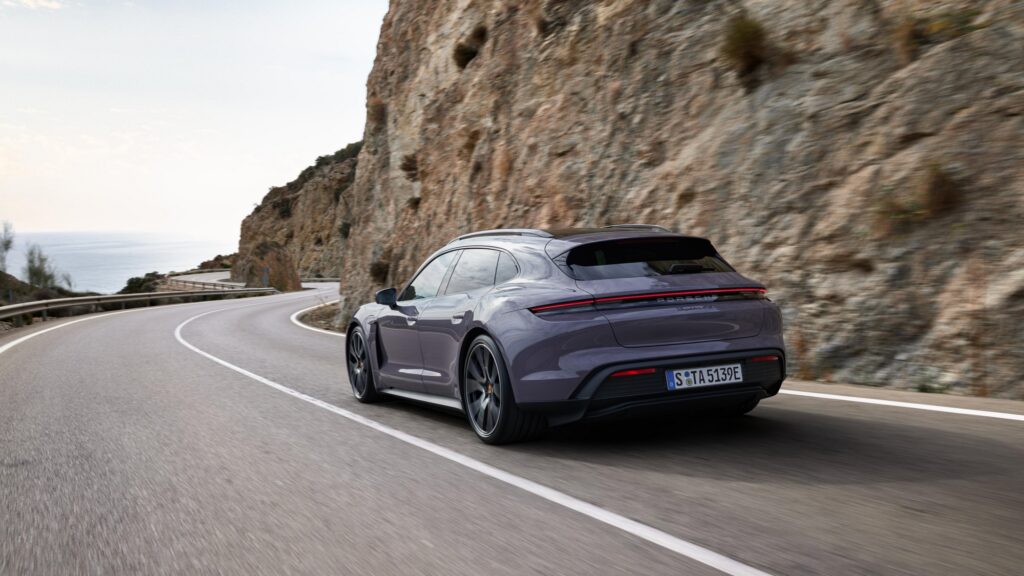
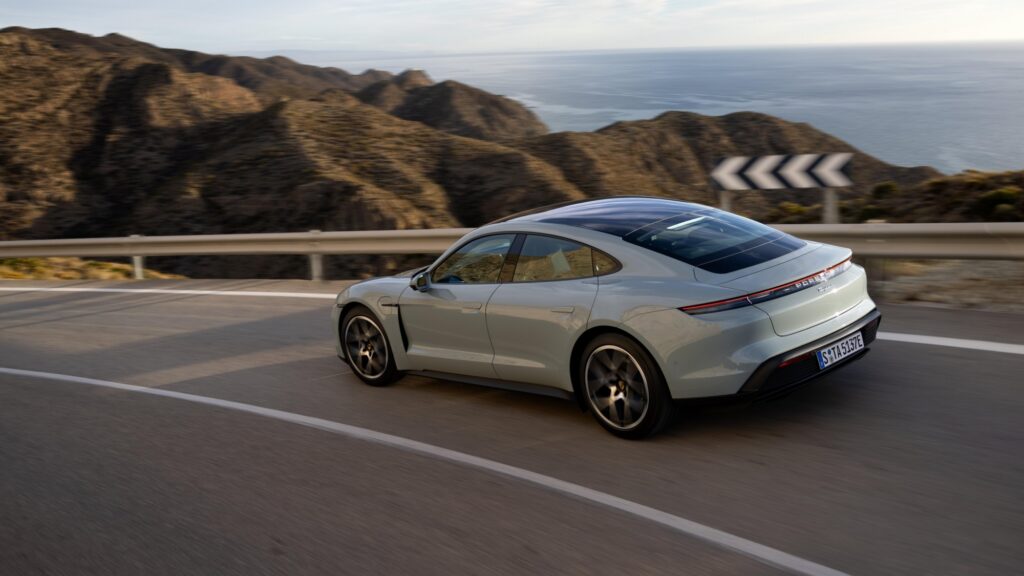
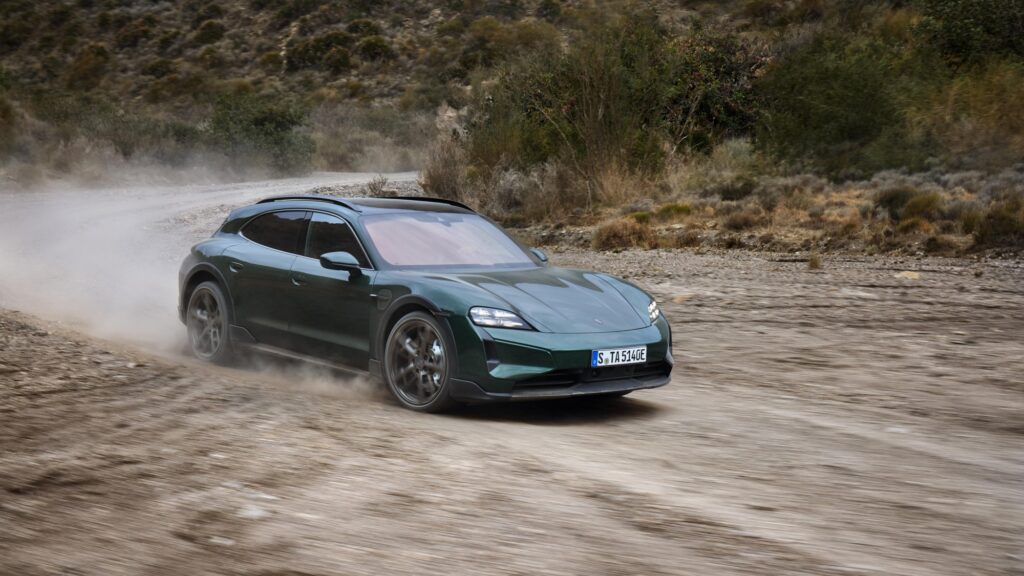
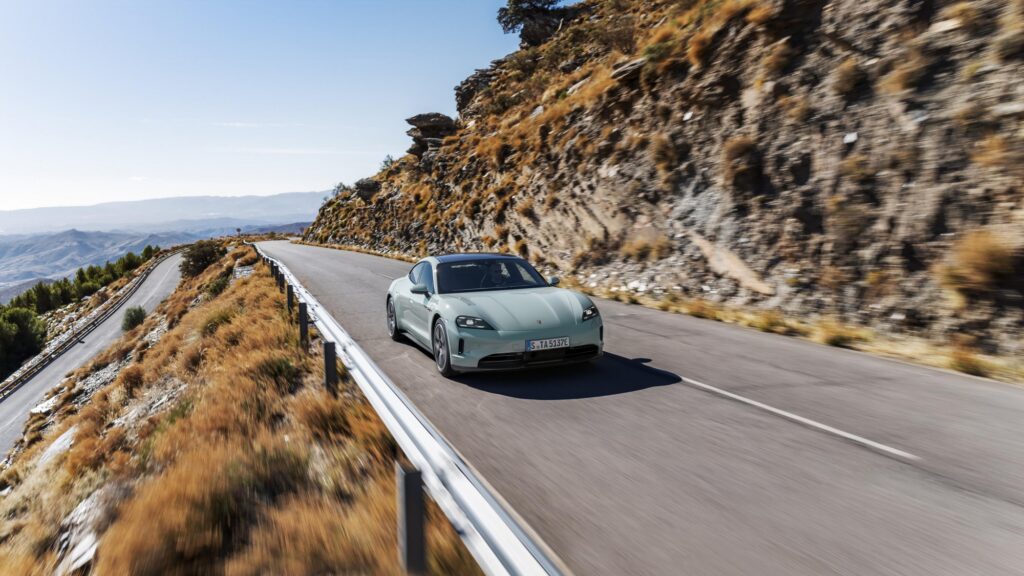
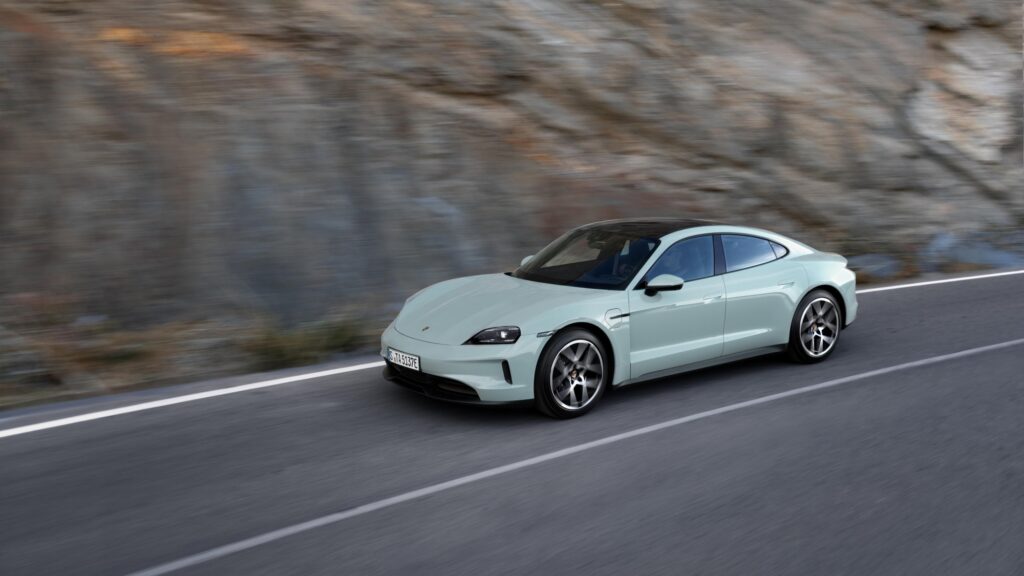
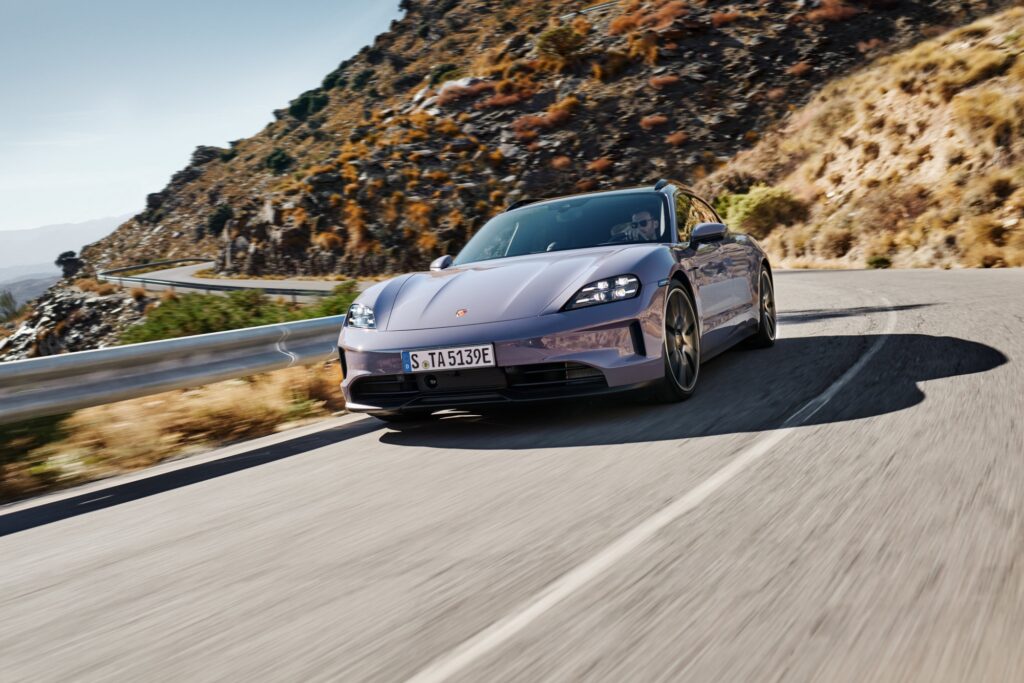
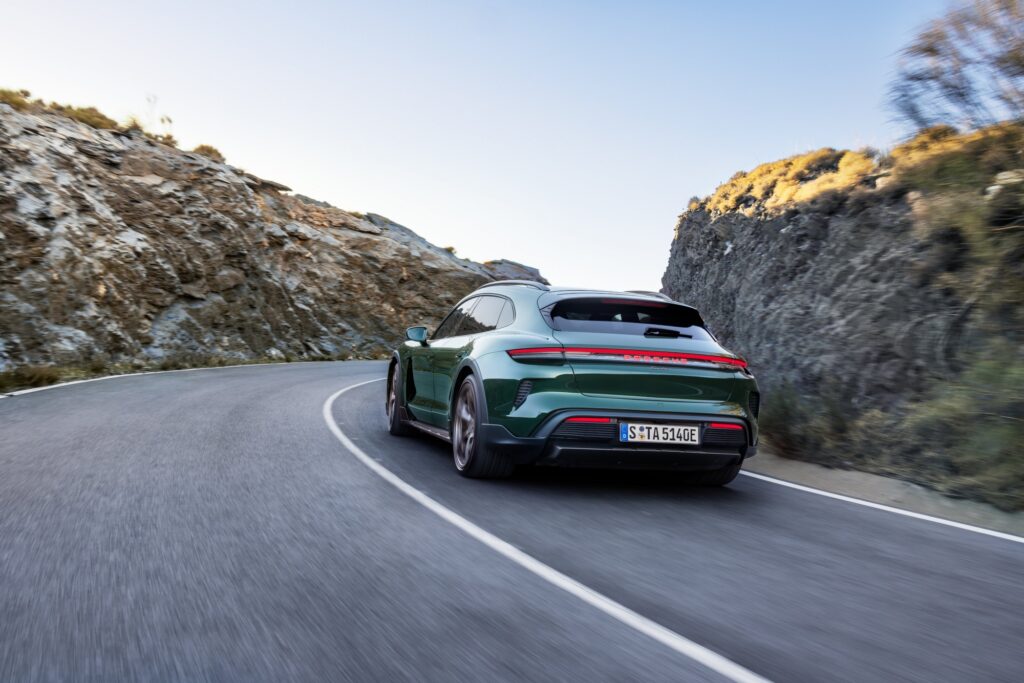
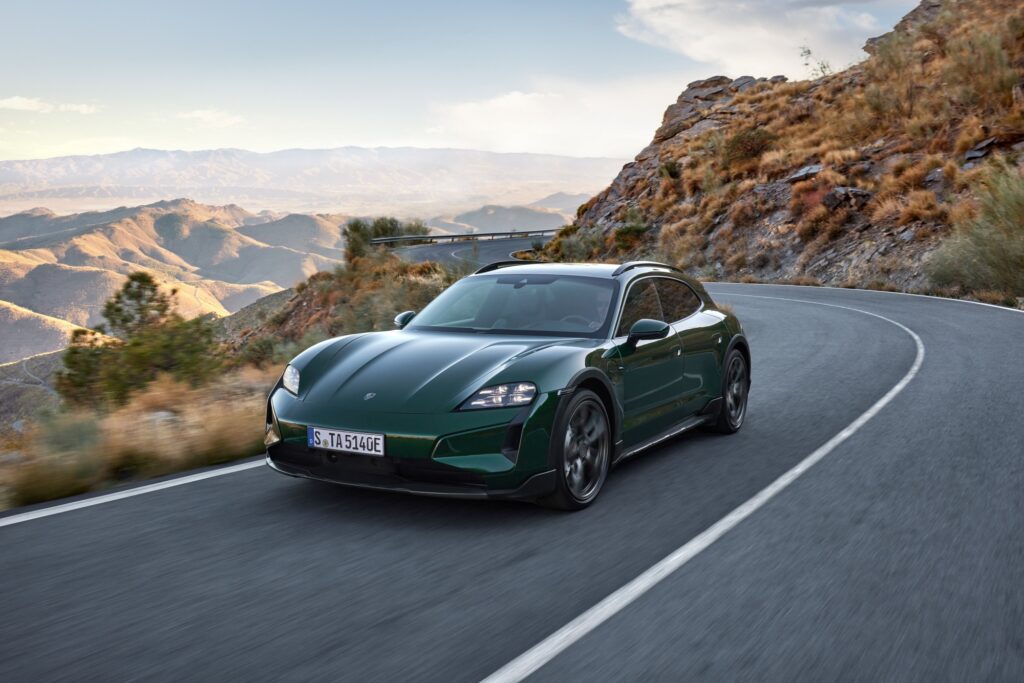
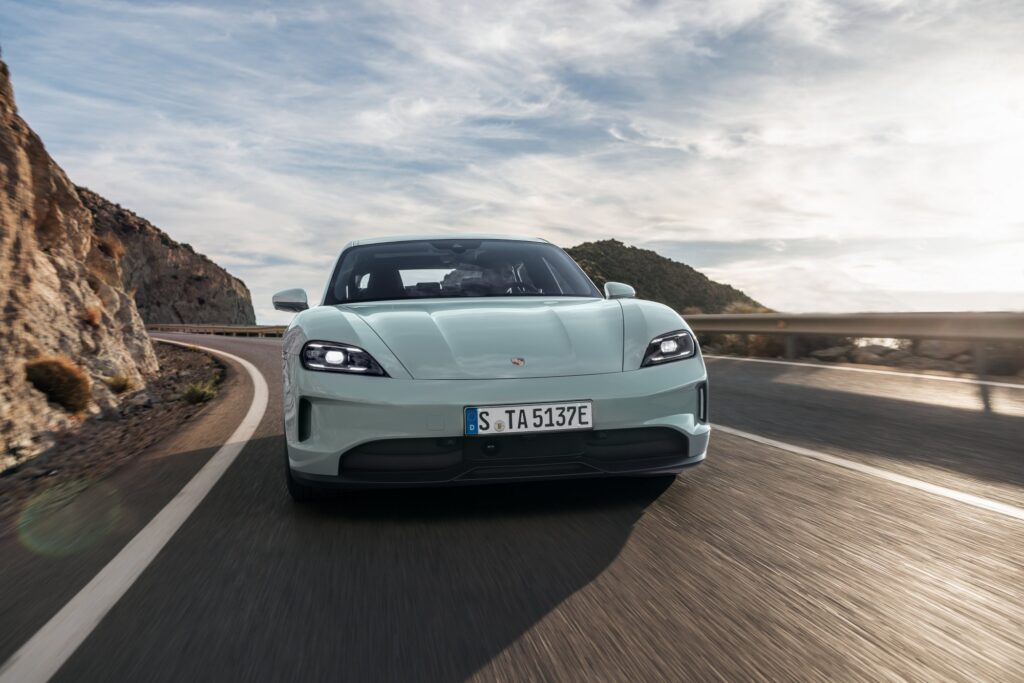
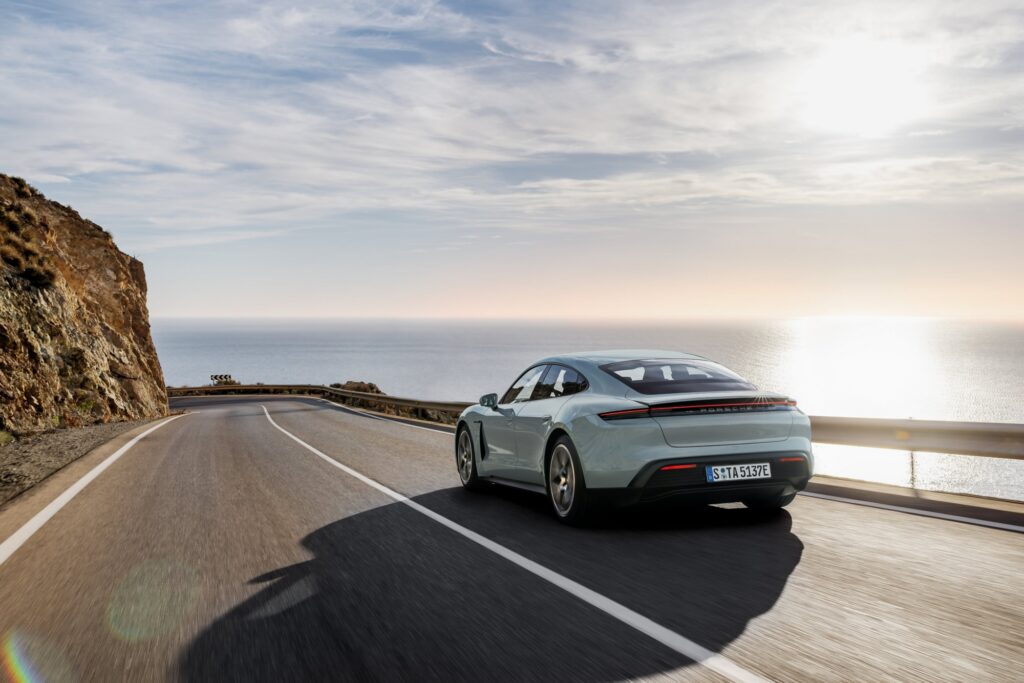
And that’s not all. The battery can support charging powers of 320 kW – before the facelift, the maximum was 270 kW. Simply put, if you arrive at a DC station with 10% battery and that station allows charging powers of up to 320 kW, then the time spent there for the energy in the battery to reach 80% is only 18 minutes.
What about the dynamics?
Only Porsche engineers knew what else could be brought here in terms of improvements. A novelty is the fact that the air suspension becomes standard throughout the range. Optionally, you can go up another level, with Porsche Active Ride, a very smart suspension system introduced by the Porsche Panamera, capable of counteracting movements such as pitch and roll, or bringing the car closer to the asphalt when necessary, or raising it if needed.
After the facelift, the top of the range is no longer the Turbo S, as you might expect. The title goes to the Taycan Turbo GT.
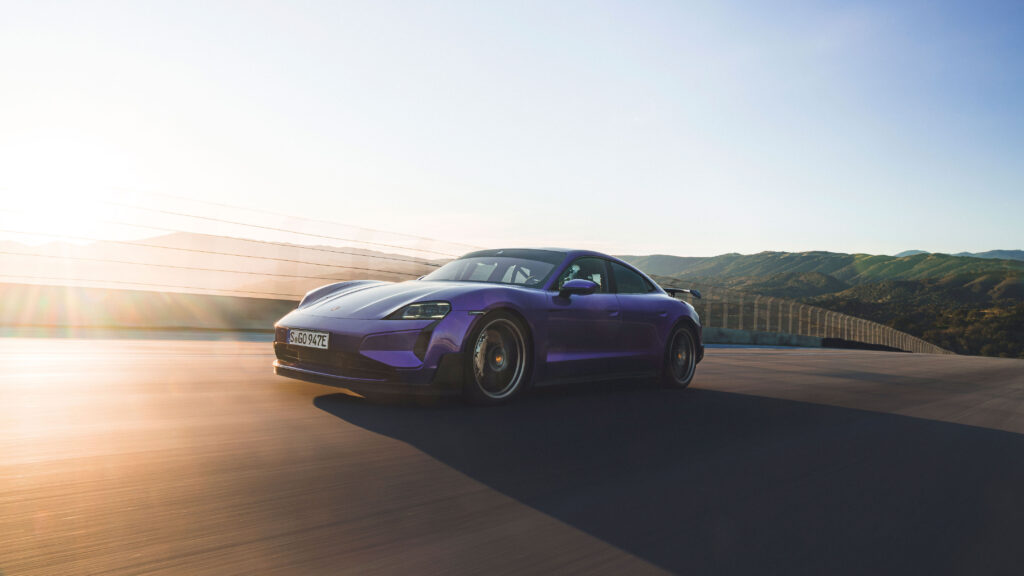
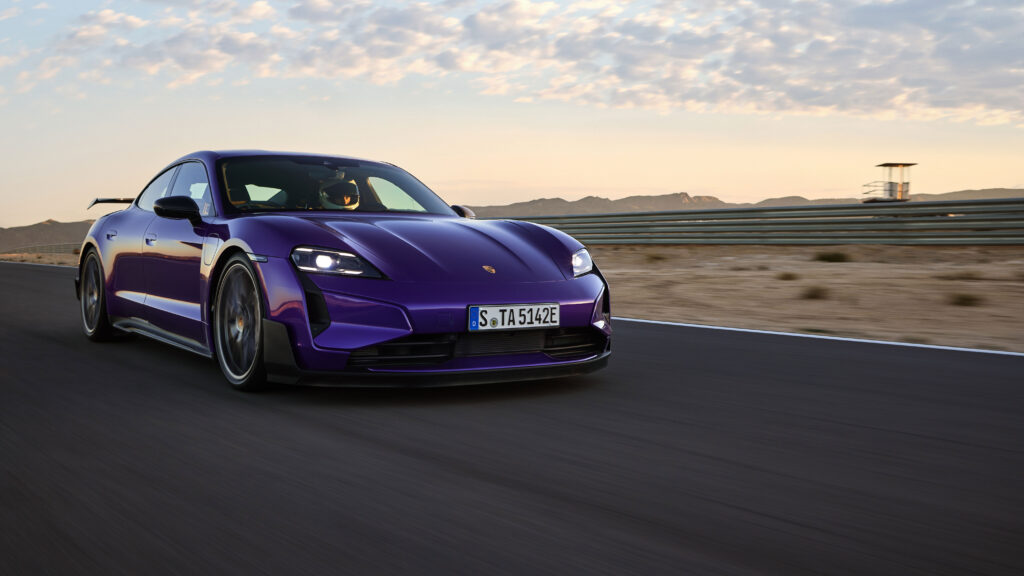
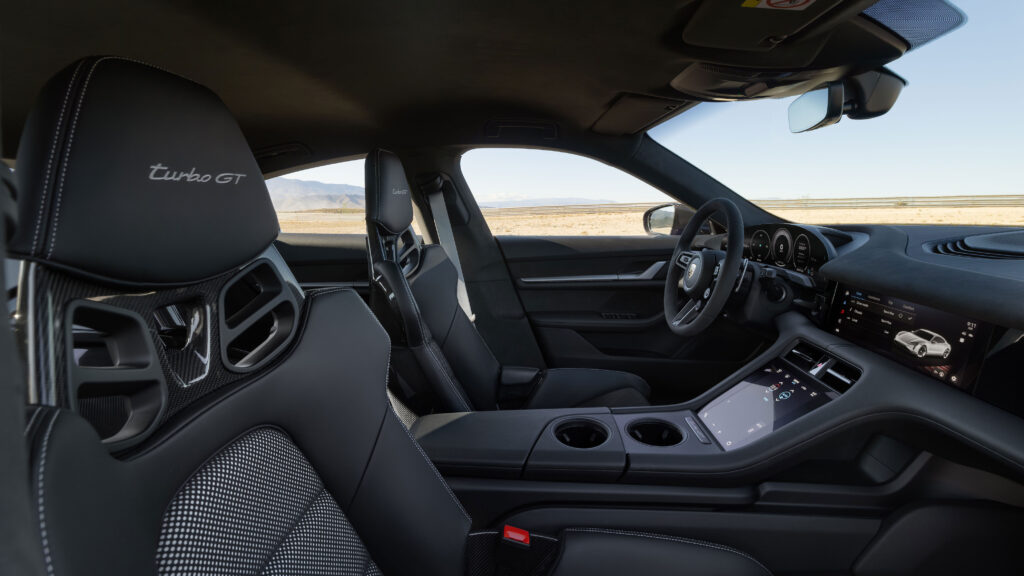
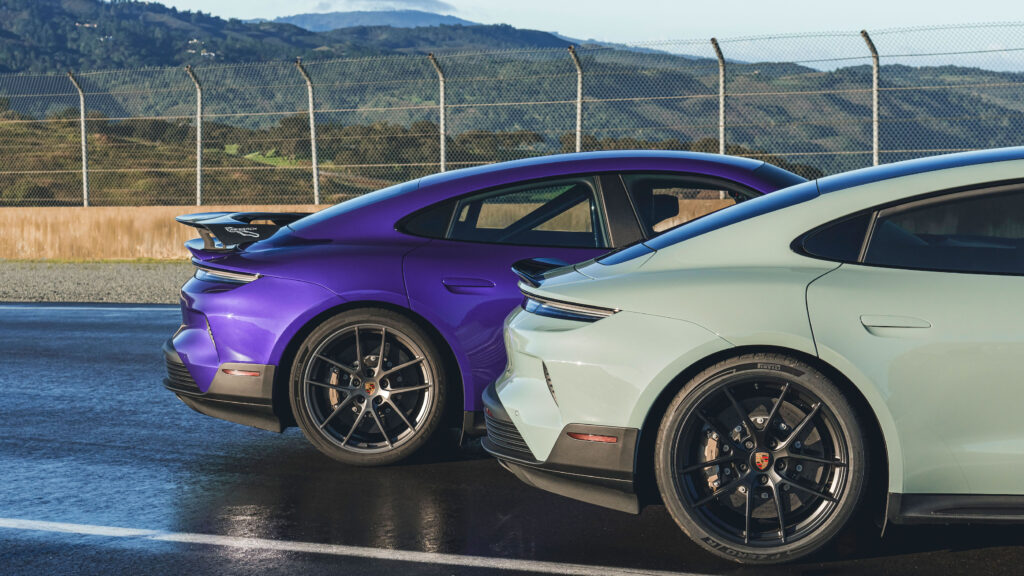
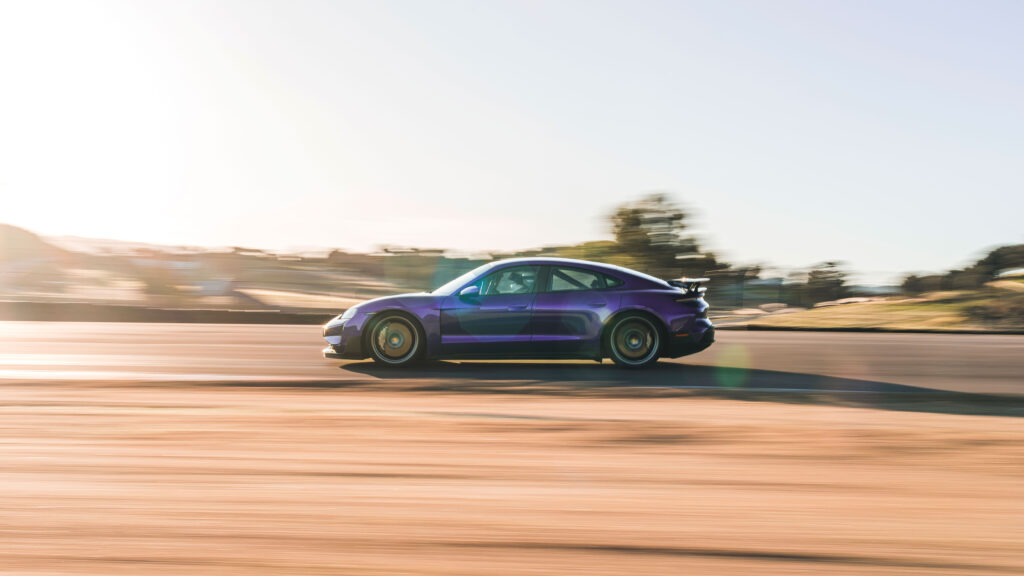
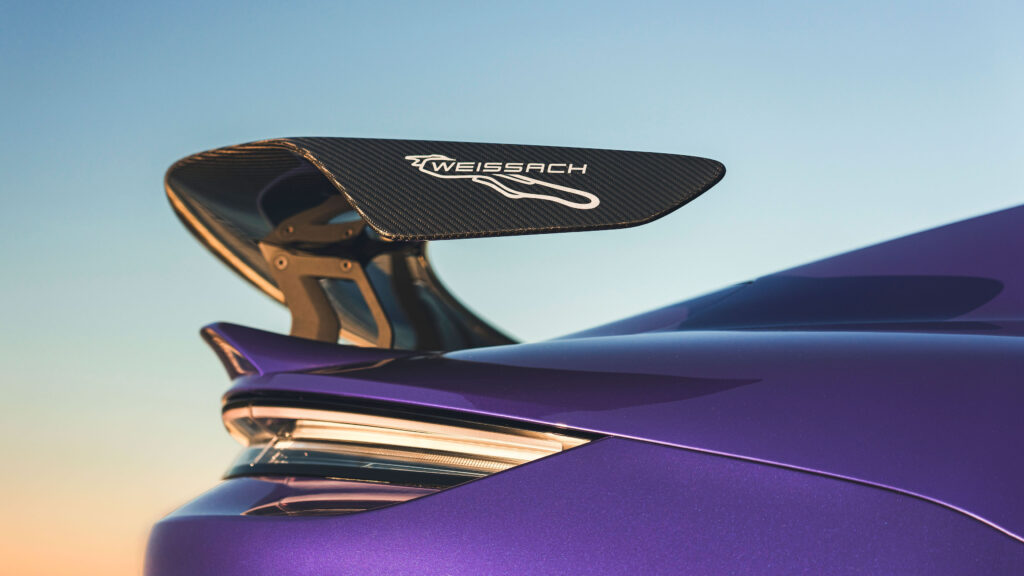
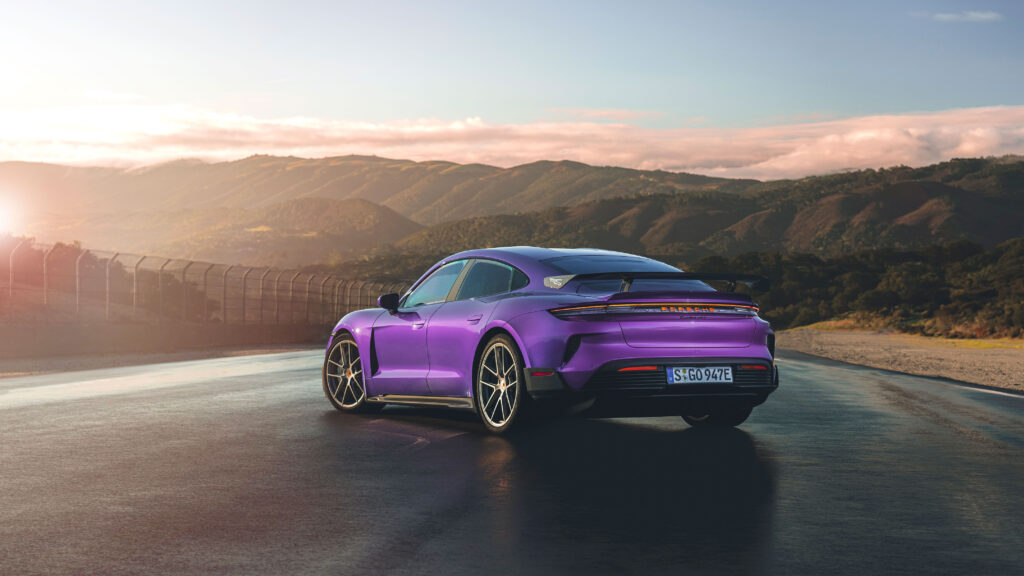
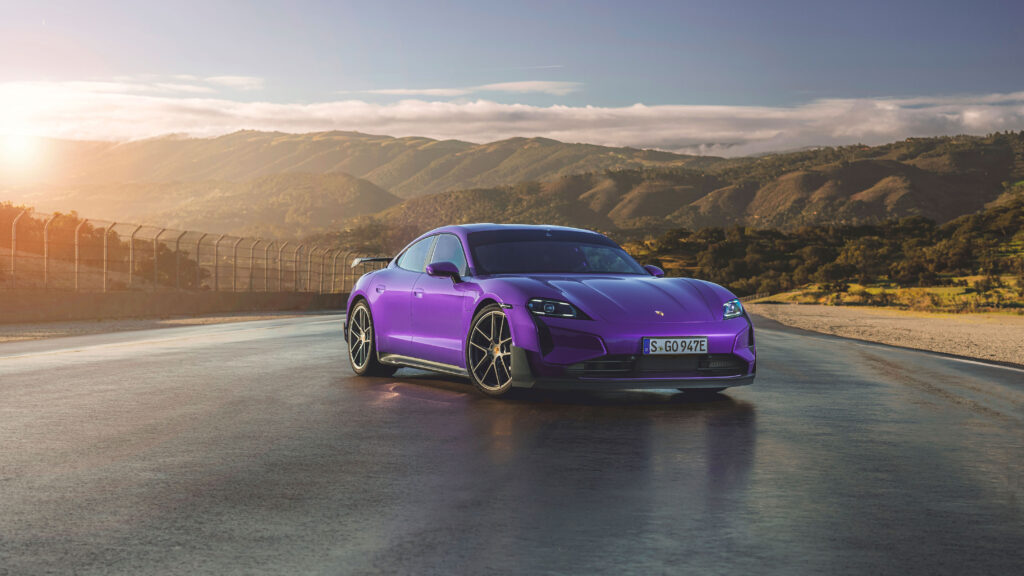
The Taycan Turbo GT can be equipped with the Weissach package, which eliminates the rear seats for a better power-to-weight ratio. Regardless of what you choose, you get two electric motors, all-wheel drive, 1,034 horsepower and, implicitly, the most powerful street-legal Porsche ever produced. You read that right: an electric car is the most powerful production Porsche.
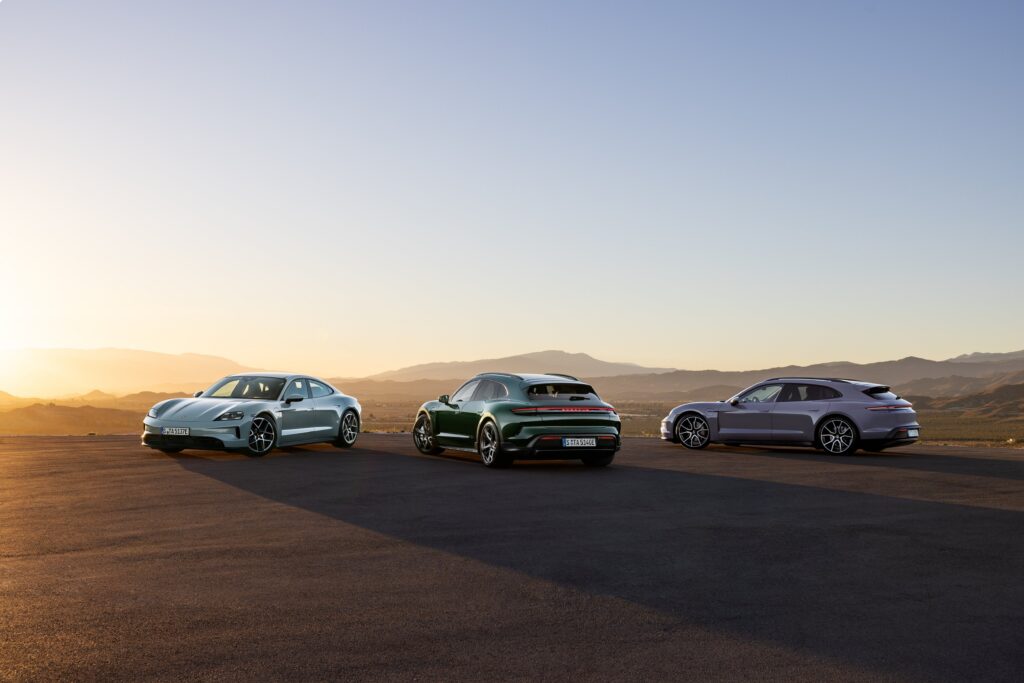
Technical specifications of the car featured in EUROCHARGE by Schaeffler.
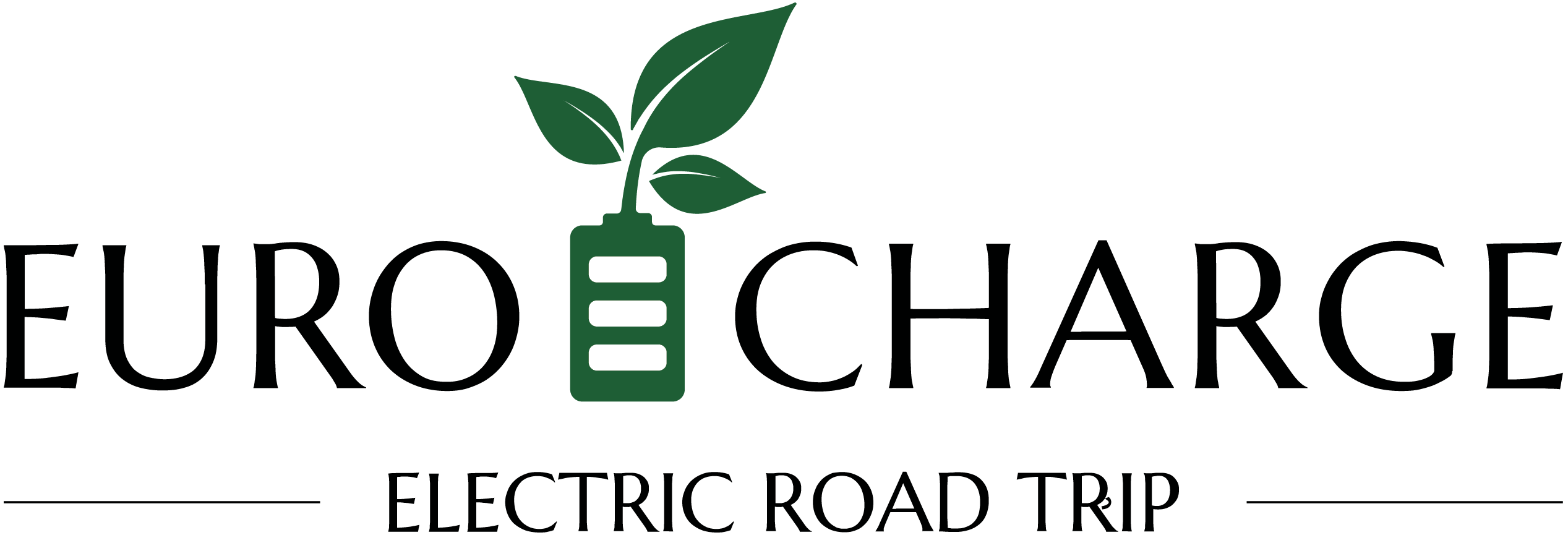
is a project backed by SCHAEFFLER
Charged by
OMV eMotion and Renovatio e-charge
Green Partner
Autonom
Charging stations
MOON România
On the road with
Michelin
Powered by
Server Config

